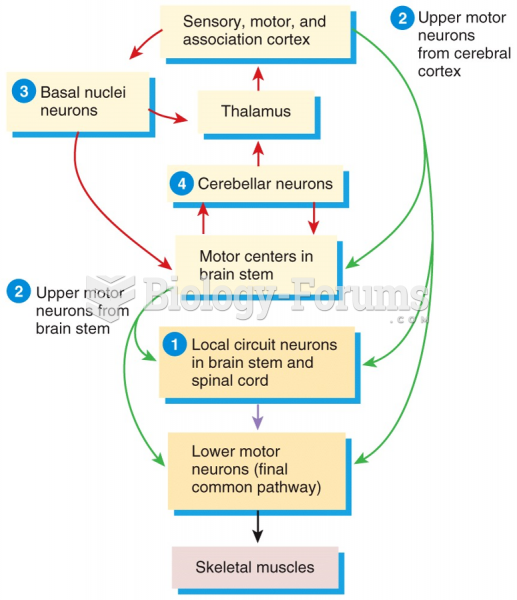This topic contains a solution. Click here to go to the answer
|
|
|
Did you know?
The people with the highest levels of LDL are Mexican American males and non-Hispanic black females.
Did you know?
There are actually 60 minerals, 16 vitamins, 12 essential amino acids, and three essential fatty acids that your body needs every day.
Did you know?
Signs and symptoms of a drug overdose include losing consciousness, fever or sweating, breathing problems, abnormal pulse, and changes in skin color.
Did you know?
Asthma cases in Americans are about 75% higher today than they were in 1980.
Did you know?
The Babylonians wrote numbers in a system that used 60 as the base value rather than the number 10. They did not have a symbol for "zero."







